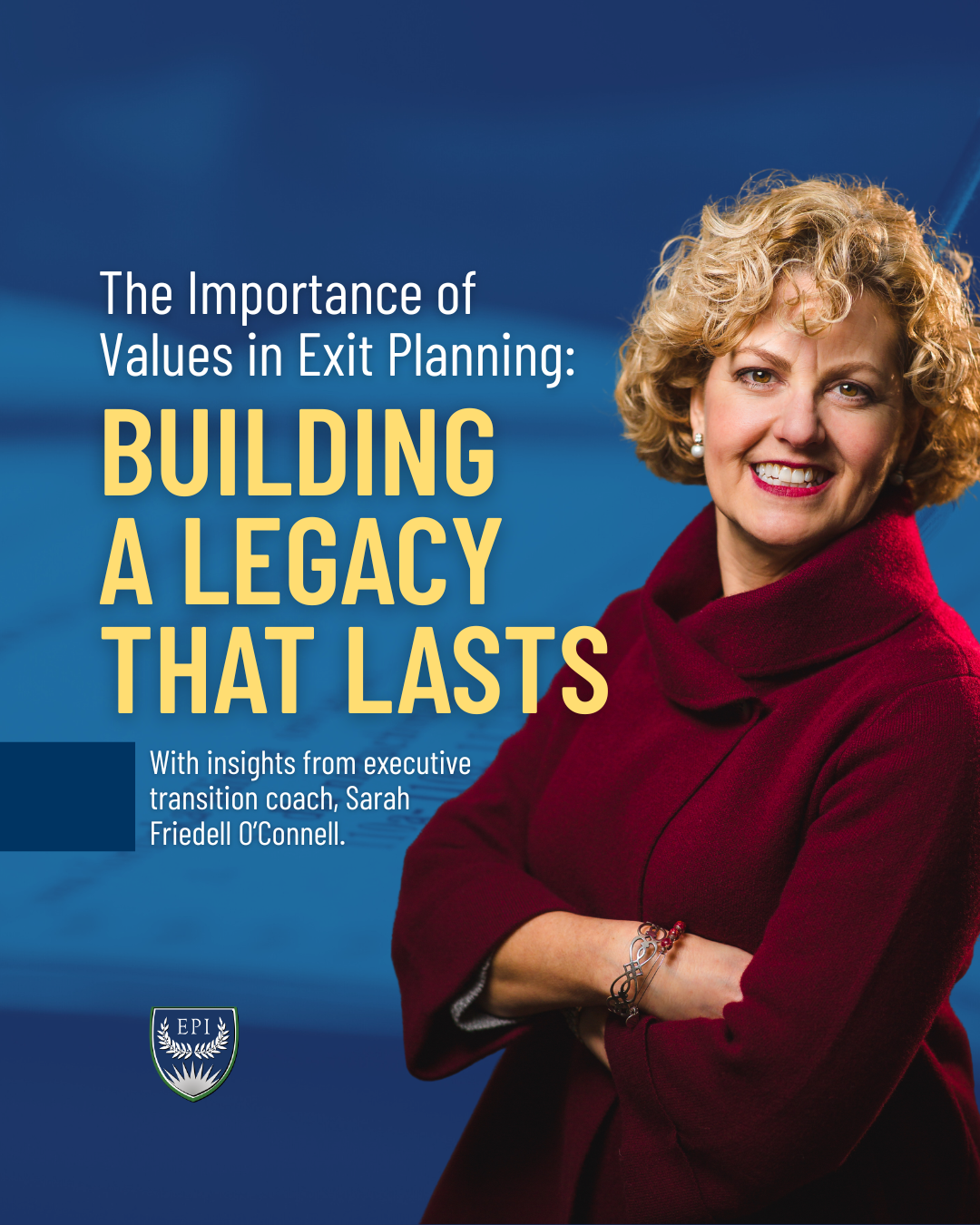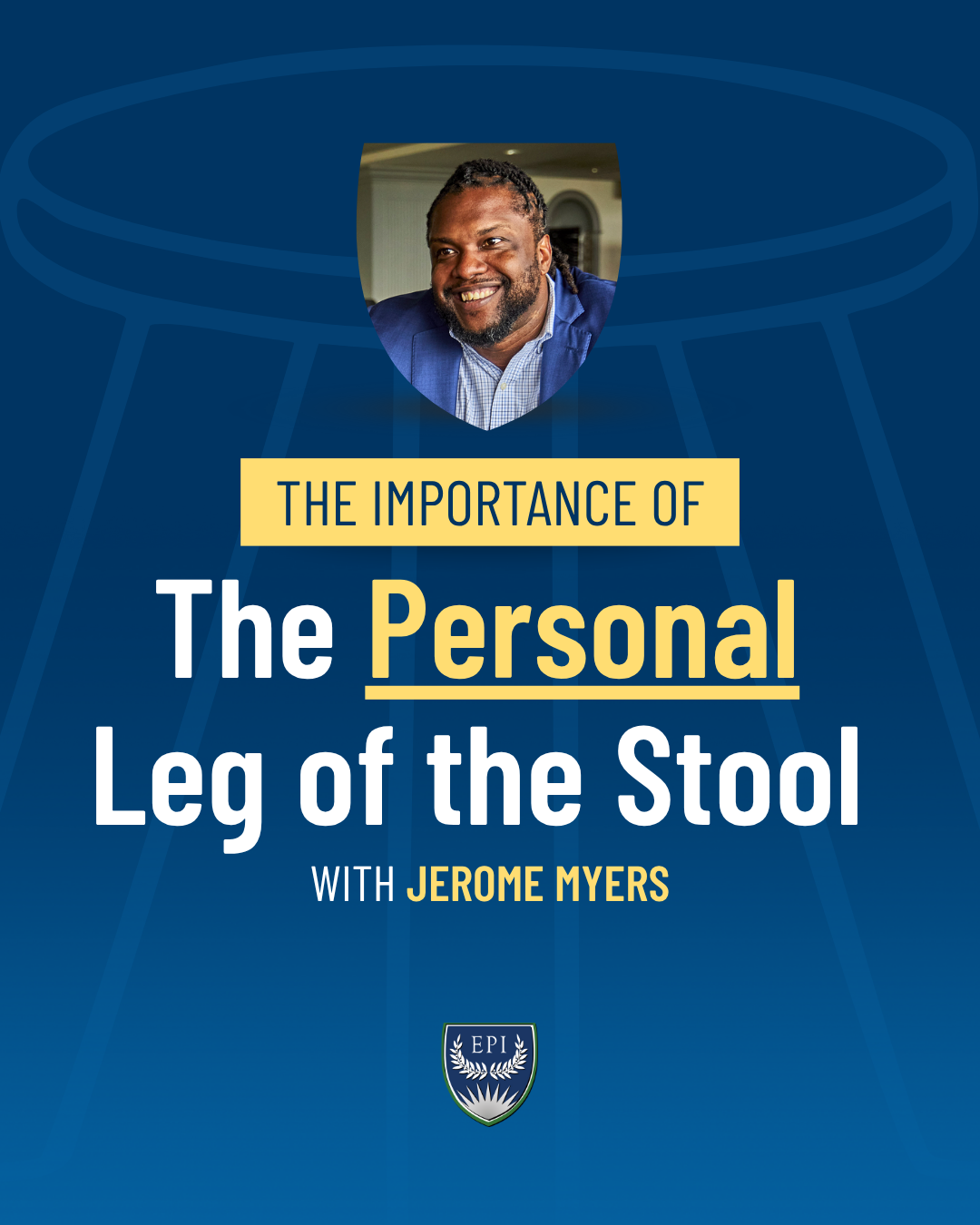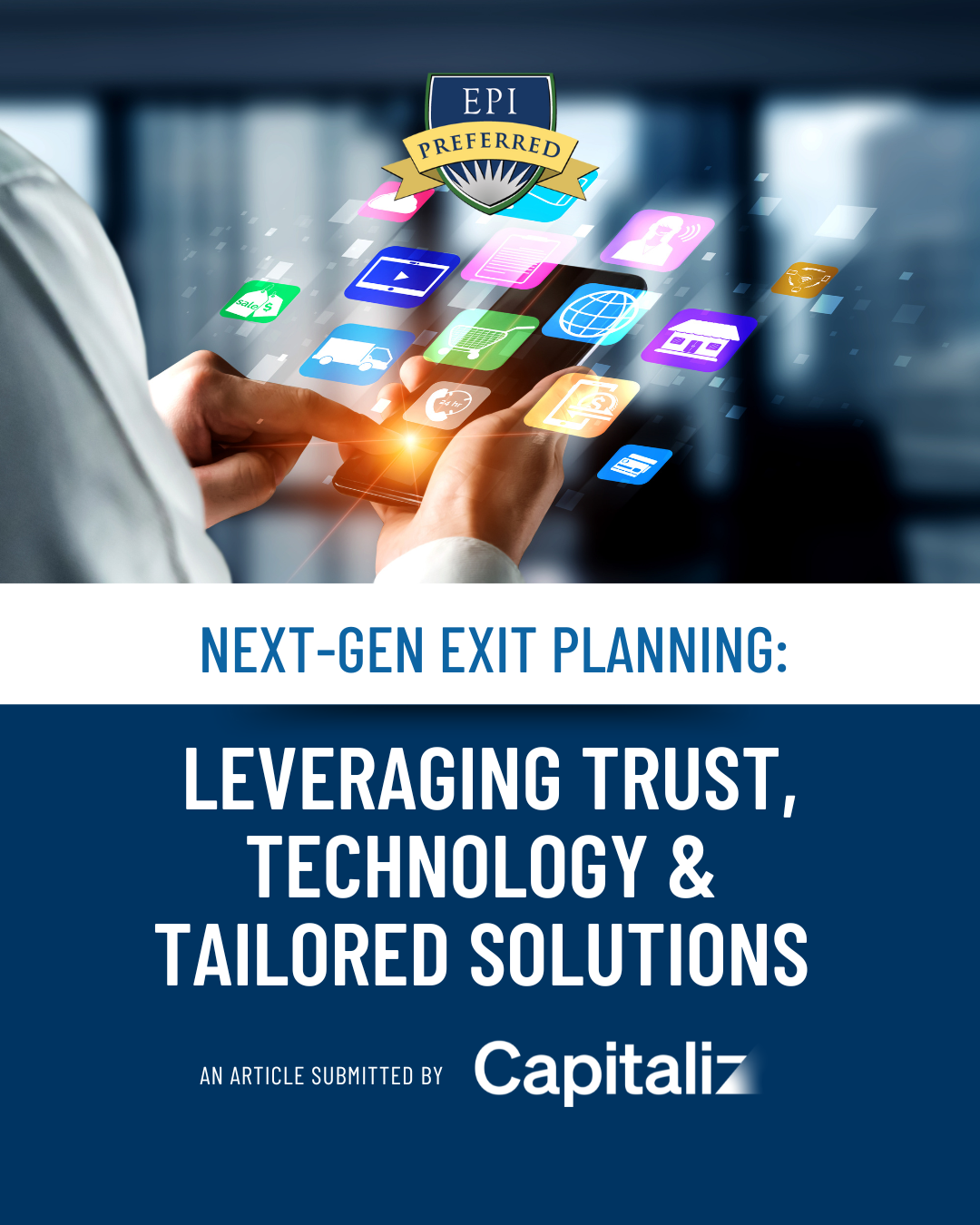
THE EXIT PLANNING BLOG
Keep up-to-date with exit planning, succession planning, industry trends, unique specialty insights, and useful content for professional advisors and business owners.
Share this
The Importance of Values in Exit Planning: Building a Legacy that Lasts
by Kellie Nock on April 21, 2025

More Than Just a Transaction
When the time comes to exit a business—and it inevitably does—a business owner is often left with a new set of decisions, like what activities will bring them a sense of purpose and accomplishment. It can feel like a time of great uncertainty, and also loss, so it is important to begin planning early for this new phase in life.
Sarah Friedell O’Connell, Founder and Executive Transition Coach at ChangePoint Advisors, understands this well. She helps her clients create post-exit plans that emphasize happiness, fulfillment, and connection. This process is interpersonal—it is not focused on the financials but rather shines a spotlight on how the owner feels.
“Business owners invest years—sometimes lifetimes—into building a successful and deeply personal enterprise. Their identity is often intertwined with the business, making a sale more than just a financial transaction; it’s a major life transition,” Sarah says. “Research from PwC (featured in the EPI 2023 National State of Owner Readiness Report) highlights this reality, revealing that 75% of business owners experience profound regret after selling their business. This regret isn’t about financial deal terms—it’s about the emotional weight of letting go and the loss of purpose, identity, and routine that often follows.”
As a Certified Coach, Sarah has helped hundreds of executives navigate career transitions, and she leverages her earlier experience in financial services at Fidelity Investments, and communications leadership at Harvard University in her work with senior leaders. Her unique combination of experience led her to found ChangePoint Advisors in 2019 to help business owners design the life they want, and start a new chapter post-exit with clarity and confidence.
Defining Key Values in Exit Planning
Sarah emphasizes that business owners and Certified Exit Planning Advisors (CEPA®) should ground their work in a strong set of values. to. These are:
- Strategic foresight
- Integrity
- Transparency
- Accountability
- Stewardship
“Strategic foresight ensures that owners plan proactively to maximize business value and create a smooth transition. Integrity and transparency foster trust with stakeholders, employees, and potential buyers, reducing uncertainty and increasing the likelihood of deal success,” she says. “Accountability and taking responsibility for key decisions ensures follow-through on commitments during the transition, and stewardship is the owner’s commitment to leaving the business in a strong position for employees, customers, and future owners.”
Other key values include collaboration and adaptability for all the on-the-spot changes and the fast-paced nature of exit planning. Finally, empathy plays a crucial role in exit planning, including empathy for employees, stakeholders, and family close to the situation.
Aligning Business Strategy with Personal Values
Part of the Value Acceleration Methodology™ is aligning personal, financial, and business goals, also known as the Three Legs of the Stool Approach™. This acknowledges that business is indeed personal, and you can’t holistically build or grow value without considering all Three Legs of the Stool.
Business and personal values can occasionally feel at odds with each other. For example, according to Sarah, businesses focus on growth, profitability, and efficiency, while personal values tend to focus more internally on ethics, purpose, and relationships. To align these values, Sarah suggests the following:
- Define your core values and ensure they guide decision-making.
- Establish a business culture that reflects ethical leadership and long-term impact.
- Prioritize transparency and consistency in business operations.
- Use exit and succession planning to ensure a lasting legacy aligned with both business and personal values.
“By integrating personal values into business strategy, leaders can develop organizations that thrive financially while also making a meaningful impact,” Sarah says.
Crafting Your Legacy
Your personal and business values are the foundation for a lasting legacy. This legacy, or your lasting impact on the people, community, and industry around you, goes beyond the financials.
“A meaningful legacy goes beyond financial wealth—it includes the knowledge one shares, the relationships built, leadership demonstrated, and principles upheld through your life,” Sarah says.
As guides and advisors, CEPAs are uniquely equipped to create a meaningful legacy through their work with business owners and fellow advisors. According to Sarah, the legacy is built through the work.
“This could involve developing innovative methodologies, building deep trust-based relationships, and providing guidance that extends beyond financial metrics to address the complete professional and personal context of business transitions,” Sarah says. “Advisors can create an impact that resonates far beyond transactions and helps facilitate positive transformations in the lives of business owners and their families.”
Related Resources:
Share this
- Blog (547)
- CEPA (429)
- exit planning (249)
- CEPA community (188)
- Business Owner (173)
- Exit Planning Summit (99)
- EPI Chapter Network (89)
- Value Acceleration Methodology (81)
- Exit Planning Partner Network (76)
- EPI Announcement (50)
- Content (48)
- Webinars (37)
- Excellence in Exit Planning Awards (34)
- Marketing (30)
- 2024 Exit Planning Summit (28)
- 5 Stages of Value Maturity (26)
- Books (24)
- EPI Academy (24)
- EPI Team (22)
- Exit Planning Teams (22)
- Leadership (21)
- 2023 Exit Planning Summit (20)
- family business (20)
- women in business (19)
- Intangible Capital (18)
- Exit Options (17)
- Black Friday (16)
- CPA (15)
- Walking to Destiny (15)
- Chapters (14)
- State of Owner Readiness (14)
- Chris Snider (12)
- National Accounts (12)
- Small business (12)
- charitable intent (12)
- personal planning (12)
- Financial Advisors (11)
- Season of Deals (9)
- 5 Ds (8)
- About us (8)
- Podcast (8)
- Scott Snider (8)
- Insiders Bash (7)
- Christmas (6)
- Exit Planning Content Library (6)
- Case Studies (5)
- Owner Roundtables (5)
- Three Legs of the Stool (5)
- Value Advisors (5)
- financial planning (5)
- Awards (4)
- Circle of Excellence (4)
- EPI Thought Leadership Council (4)
- Exit & Succession (4)
- Five Ds (4)
- executive training (4)
- Owners Forum (3)
- author (3)
- forbes (3)
- DriveValue (2)
- Exit Is Now Podcast (2)
- Peter Christman (2)
- Veteran (2)
- Whitepapers (2)
- Annual Exit (1)
- Business Owners Forum (1)
- SOOR (1)
- business consultants (1)






